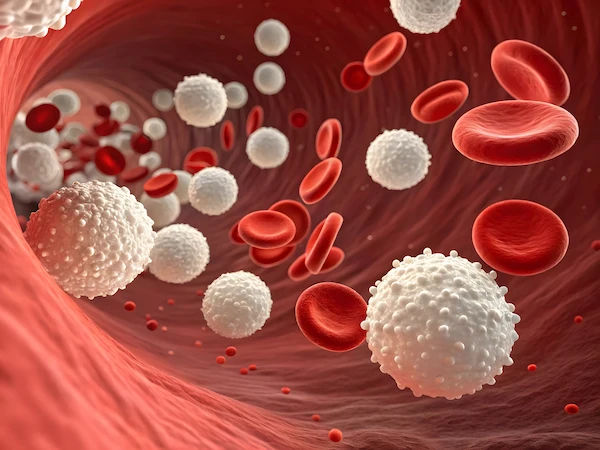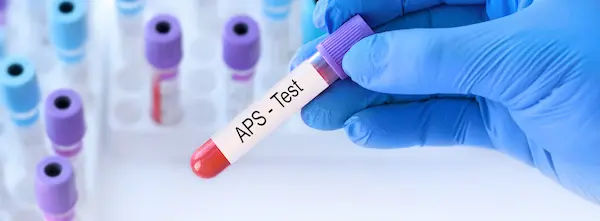Best Health Screening Tests for Senior Citizens
Know about the best screening tests for 60+, important blood tests and who should get them done.

Written by
Last updated on 17th Jul, 2025

Introduction
With increasing age, staying healthy becomes even more crucial. For adults aged 60 and above, regular health check-ups and specific blood tests are vital. They act like an early warning system, helping to spot potential health problems before they become serious.
Why Age 60+ Matters for Health?
Reaching 60 and beyond is a wonderful milestone, but it also means your body has different needs. As you age, your body's systems age too, and the risk of certain health conditions increases. This can include:
- Organ Function: The Kidneys and liver might not work as efficiently as they used to.
- Chronic Diseases: Higher risk of conditions like diabetes, heart disease, and high blood pressure.
- Bone Health: Bones can become weaker (osteoporosis), increasing the risk of fractures.
- Nutrient Absorption: Your body might not absorb vitamins and minerals as well.
- Immune System: Your body's ability to fight off infections can weaken.
Being proactive with specific blood tests can help you and your doctor keep a close eye on these changes. This allows for early action, which can make a big difference in managing health conditions and maintaining the quality of life.
Important Blood Tests for Senior Citizens
Here are some essential blood tests that can provide valuable insights into your health as you age:
1. Liver Function Tests (LFT)
Your liver is a vital organ that helps filter toxins from your blood, produces important proteins, and aids in digestion. As you get older, liver function can sometimes be affected by medications, diet, or other health conditions.
What it measures: LFTs are a group of blood tests that check different enzymes and proteins made by your liver, such as:
- ALT (Alanine Aminotransferase) and AST (Aspartate Aminotransferase): Enzymes released into the blood when liver cells are damaged.
- Alkaline Phosphatase (ALP): An enzyme that can be in high levels if there are problems with bile ducts or bones.
- Bilirubin: A waste product from red blood cells; high levels can cause jaundice (yellow skin).
- Albumin and Total Protein: Proteins made by the liver; low levels can suggest liver damage.
What it Means: Abnormal levels in these tests can point to liver inflammation, damage, or other liver conditions. Your doctor will interpret these results to decide if further investigation or lifestyle changes are needed.
2. Kidney Function Tests (KFT) / Renal Profile
Your kidneys are essential for filtering waste products from your blood and maintaining your body's fluid balance. Kidney function can decline with age, and conditions like high blood pressure or diabetes can put extra strain on them.
What it measures: KFTs typically include:
- Creatinine: A waste product from muscle activity. High levels can mean your kidneys aren't filtering well.
- Blood Urea Nitrogen (BUN): Another waste product. High levels can also indicate kidney problems.
- Uric Acid: A waste product; high levels can indicate kidney issues or gout.
- Electrolytes (Sodium, Potassium, Chloride): These minerals are important for body functions, and kidney problems can affect their balance.
What it Means: High levels of creatinine or BUN, or imbalances in electrolytes, suggest that your kidneys might not be working as they should. Early detection allows for management to slow down kidney damage.
3. Blood Sugar Tests
The risk of developing type 2 diabetes increases significantly with age. High blood sugar can silently damage various organs, including your heart, kidneys, eyes, and nerves, leading to serious complications if not managed.. So, getting a timely blood sugar test is compulsory.
What it measures:
- Fasting Blood Sugar (FBS): Check your blood sugar level after you haven't eaten for at least 8-12 hours (usually overnight).
Normal: Below mg/dL (5.6 mmol/L)
Prediabetes: 100−125 mg/dL (5.6−6.9 mmol/L)
Diabetes: 126 mg/dL (7.0 mmol/L) or higher (on two separate tests). - Glycated Haemoglobin (HbA1c): Gives you an average of your blood sugar levels over the past 2-3 months. It's a great way to see how well your blood sugar has been controlled over time.
Normal: Below 5.7
Prediabetes: 5.7
Diabetes: 6.5 or higher.
What it Means: High blood sugar levels in these tests indicate impaired sugar control. Early detection means you can take steps to manage your blood sugar, often through diet and exercise, and potentially avoid diabetes or its complications.
4. Cardiac Markers (Lipid Profile)
Heart disease remains a leading health concern for senior citizens. A Lipid Profile measures the different types of fats (lipids) in your blood, including cholesterol and triglycerides, which are key indicators of heart health risk.
What it measures:
- Total Cholesterol: The overall amount of cholesterol in your blood.
- HDL Cholesterol (High-Density Lipoprotein): Often called "good" cholesterol because it helps remove excess cholesterol from your arteries. Higher levels are better.
- LDL Cholesterol (Low-Density Lipoprotein): Often called "bad" cholesterol because high levels contribute to artery plaque. Lower levels are better.
- Triglycerides: Another type of fat in your blood; high levels can also increase heart disease risk.
What it Means: Your doctor will look at the balance of these fats. High LDL or triglycerides mean you have a higher risk of heart disease, and managing these levels through diet, exercise, or medication is crucial.
5. Bone Health Markers (Calcium, Vitamin D, Alkaline Phosphatase)
As you age, especially for women after menopause, bones can become weaker and more brittle, a condition called osteoporosis. This increases the risk of fractures. Monitoring key markers related to bone health is vital for maintaining strong bones.
What it measures:
- Calcium (Serum): Measures the total amount of calcium in your blood, a key mineral for bone strength.
- Vitamin D: Essential for your body to absorb calcium. Low levels are very common in seniors.
- Alkaline Phosphatase (ALP): An enzyme found in bones and liver. High levels can sometimes indicate increased bone turnover or other issues.
What it Means: Abnormal levels can suggest problems with calcium absorption, vitamin D deficiency, or issues with bone metabolism. Early detection allows for dietary adjustments, supplementation (like vitamin D and calcium), or other treatments to protect your bone health.
Book a Bone Health Markers Test
6. Complete Blood Count (CBC)
The Complete Blood Count (CBC) is a fundamental blood test that provides a broad overview of your general health. It can help detect a wide range of disorders, including infections, anaemia, and certain blood disorders.
What it measures:
- Red Blood Cells (RBCs) / Haemoglobin (Hb): How many red blood cells do you have, and how much oxygen-carrying protein (haemoglobin) is in them?
- White Blood Cells (WBCs): The number and types of white blood cells, which help fight infections.
- Platelets: Small cells that help your blood clot.
What it Means: Abnormalities in your CBC can point to anaemia, an ongoing infection, or other blood-related issues that might affect your energy and overall health.
Book a Complete Blood Count Test
Get These Tests To Get A Yourself Checked up
Who Should Get These Tests?
Every adult aged 60 and above should consider these blood tests as part of their routine health check-up. They are especially important if you:
- Have a family history of diabetes, heart disease, kidney problems, liver issues, or osteoporosis.
- Are experiencing new or worsening symptoms like unexplained tiredness, weight changes, swelling, or changes in appetite?
- Have existing chronic conditions like high blood pressure or diabetes.
- Are taking multiple medications, as some can affect organ function or nutrient levels.
- Have an inactive lifestyle or dietary concerns.
Discussing these tests with your doctor will help create a personalised health plan that suits your needs.
Why Choose Apollo 24|7 for Your Tests?
When you need health tests, especially for something as important as senior health, you want a service that is reliable, accurate, and easy to use. Apollo 24|7 offers all of this and more. They make it simple to get tested with home sample collection for many blood tests, which is very helpful for senior citizens. As part of the trusted Apollo Hospitals group, they ensure high-quality, accurate results using advanced lab equipment. They provide a wide range of tests and comprehensive health packages, including those focused on senior citizen health, helping you get a complete picture of your well-being.
Conclusion
Regular health screenings are a cornerstone of healthy ageing. For senior citizens, including essential blood tests like Liver Function Tests, Kidney Function Tests, Blood Sugar checks, Cardiac Markers (Lipid Profile), Bone Health Markers (Calcium, Vitamin D, ALP), and a Complete Blood Count in your routine can provide invaluable insights into your body's overall health. Early detection of any imbalances or potential issues means you can take steps to manage them, often with simple lifestyle changes or medication. It can prevent serious health problems and increase treatment options at the early stages. Prioritising these tests is a vital step towards maintaining your health, independence, and quality of life for many years to come.




.webp)
.webp)

